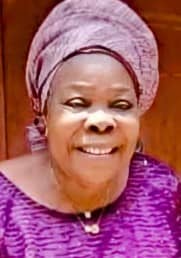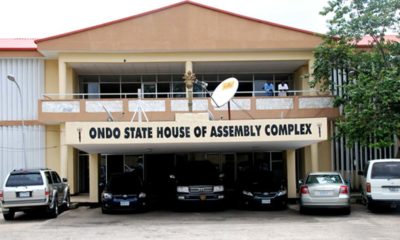FEATURES
A Tribute to My Sister, My “Little Mum”
A Tribute to My Sister, My “Little Mum”
By Folu Olamiti FNGE
In recent weeks, I have been struck by the profound loss of two remarkable individuals. First, the passing of Justice Emmanuel Olayinka Ayoola, a retired Supreme Court Judge with whom I shared a deep, daily connection. And now, the heartbreaking departure of my closest elder sister, Christie Oluwakaikunmi Adebamiwa.

Writing this tribute to my cherished “egbon,” whom I affectionately called my “mama kekere” – my little mum – has been one of the most challenging tasks for my spirit. Mrs. Christie Oluwakaikunmi Adebamiwa (née Olamiti) was far more than a sister; she was a cornerstone of love and sacrifice in my life.
From my earliest memories, she cared for me with the unwavering devotion of a mother. Ten years my senior, she took joy in carrying me on her back each day. One of the most poignant stories of her love came during my battle with the highly contagious and deadly smallpox.
My mother recounted how my sister, undeterred by the grave risks, never left my side. She bathed me, fed me, and comforted me to sleep every single day until I recovered. That fierce and unyielding love only deepened as I grew older.Growing up, our father was a catechist earning a modest salary of just two shillings a month – barely enough to sustain our family of eight. Yet, my sister led the way, demonstrating remarkable resilience and ingenuity. She would rise early to hawk pap in the mornings and, after school, sell soda soap. When she earned a scholarship for secondary and university education, becoming the second female graduate in Idanre land, it was a blessing not only for her but for our entire family.
She used her education to ensure her siblings also received quality education, opening doors we never thought possible. When I began my journalism career in Ibadan, she and her Reverend husband welcomed me into their home at St. Anne’s Vicarage, where I stayed for three years. During this time, she even borrowed money to cover my tuition fees at the Nigerian Institute of Journalism in Lagos, supporting me with unwavering love until I could stand on my own.Though she lived to the age of 83, her passing feels as though a part of me has gone with her.
My sister was a virtuous woman – deeply religious and a true philanthropist. Even in her final days, while in a semi-comatose state, she sang in Yoruba: “E so f’araye, Jesu nbo,” meaning, “Go tell the world, Jesus is coming.” These words remained on her lips until her last breath.
A remarkable testimony occurred during her hospital stay. After weeks in a coma, as she began to gasp for breath, we prepared for the worst. Yet, to our astonishment, her breathing stabilized, and she started taking in food and fluids while still in a comatose state.
The doctor decided to discharge her, bringing her back home. It was during this time that she began to sing involuntarily about the second coming of Jesus Christ.
Her coming around was to deliver God’s message. She Indeed, saw Jesus before she peacefully passed on two months after.I have no doubt she is now resting in the embrace of the Lord. I will forever miss her infectious smile, a true reflection of her pure and kind heart. Goodnight, my dearest little mum. Until we meet again, may we part no more.


